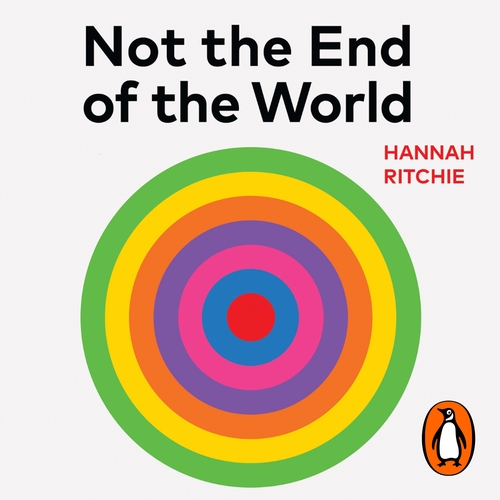‘Not the end of the world,’ says data scientist

PARIS—Humanity has made great strides in recent decades: air is cleaner; poverty, deforestation and childhood mortality have fallen; gasoline cars—and maybe coal—are on the way out.
This optimistic take on the state of affairs may be startling to some, but not Hannah Ritchie, a Scottish data scientist whose first book lets the facts speak for themselves.
“We just are unaware of how bad the past was,” Ritchie told Agence France-Presse (AFP) from Edinburgh.
“At least half of kids died, that diseases were rife, that most people lived in poverty, that most of the world were hungry.”
Her book, “Not the End of the World,” presents an evidence-rich counterpoint to the view that everything is going in the wrong direction, and offers possible approaches to the burning challenges of our time.
That includes climate change, a problem that Ritchie—lead researcher at Our World in Data website—is careful not to understate.
“If you skew too far in one direction, I don’t think you’re telling the true story,” she said.
“That’s actually not useful—to deny it, or downplay it or not be serious about it. But at the same time, you also need to focus on solutions, so we actually drive progress forward.”
Misguided solutions
Those solutions are not always obvious, Ritchie said, and focus can be misguided when it comes to choosing what personal action to take in aid of the planet.
Ritchie pointed to the tendency in rich countries to hype behaviors that have little real impact—such as recycling or ensuring televisions are not left on standby mode—while continuing to drive, fly and eat meat.
Assuming everything “natural” is automatically good can also mask some inconvenient realities, she added.
Huddling around a campfire can produce a sense of closeness to nature, but burning wood belches out smoke harmful to humans and the planet.
“What looks sustainable is the natural cow in a green field eating grass. But actually, when you do the numbers on this, the meat substitute burger is vastly, vastly better on almost any environmental metric compared to the cows,” she said.
An advocate of lab-grown meat, nuclear power and GMO, Ritchie does not relish being contrarian on tackling environmental problems.
“I don’t take delight in being provocative. I just care about the truth,” she said.
Ritchie’s data-driven conclusions can run counter to the conventional wisdom about how to save the planet.
But they can be illuminating, identifying areas where resources might be better spent elsewhere.
For example, reducing the amount of plastic bags or bottles consumed in Europe might seem a good idea on paper.
But hardly any of the plastic in the sea originates from Europe, with most flowing from Asia, which does not have the same rigorous waste management schemes in place.
“If everyone in Europe stopped using plastics tomorrow the world’s oceans would hardly notice the difference,” Ritchie wrote in her book.
AFP is one of the world's three major news agencies, and the only European one. Its mission is to provide rapid, comprehensive, impartial and verified coverage of the news and issues that shape our daily lives.

















